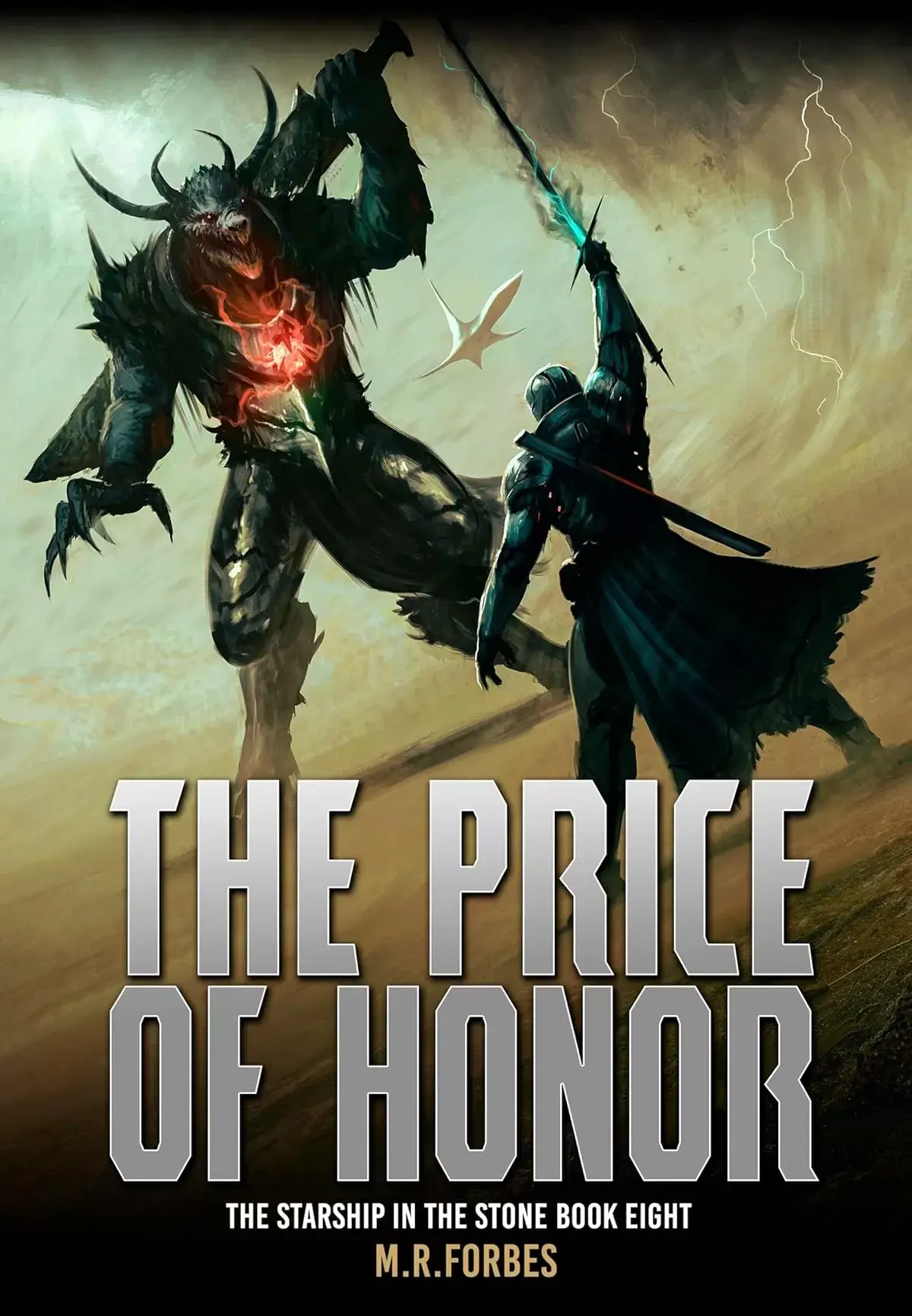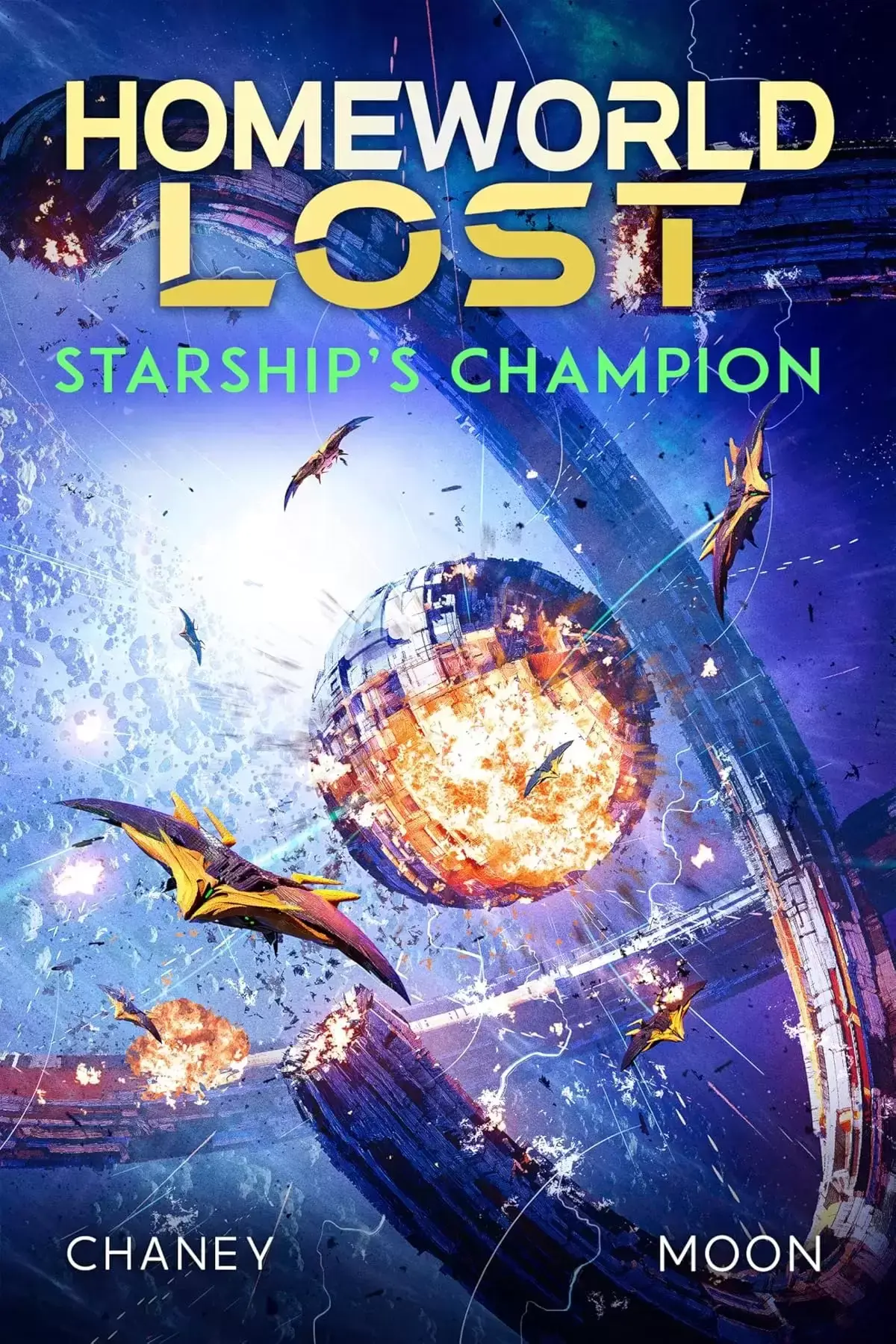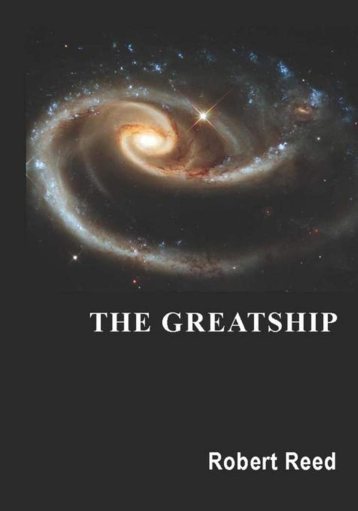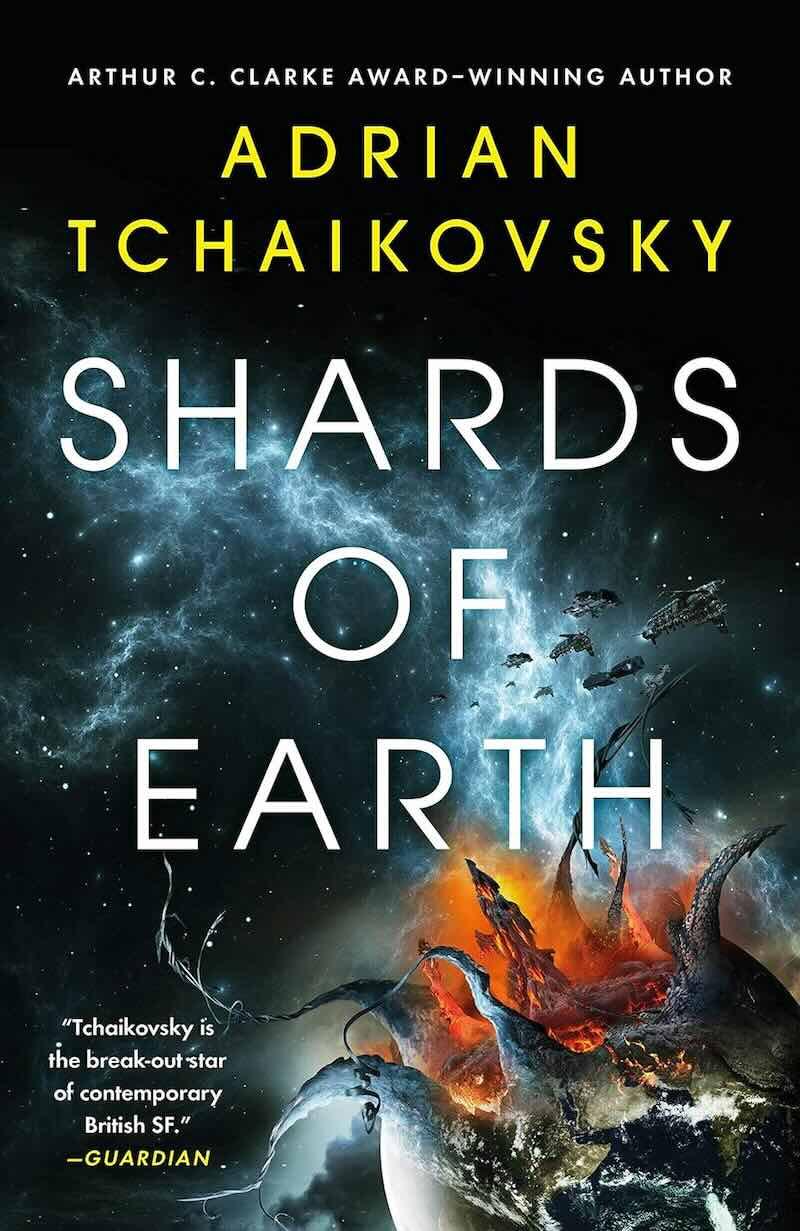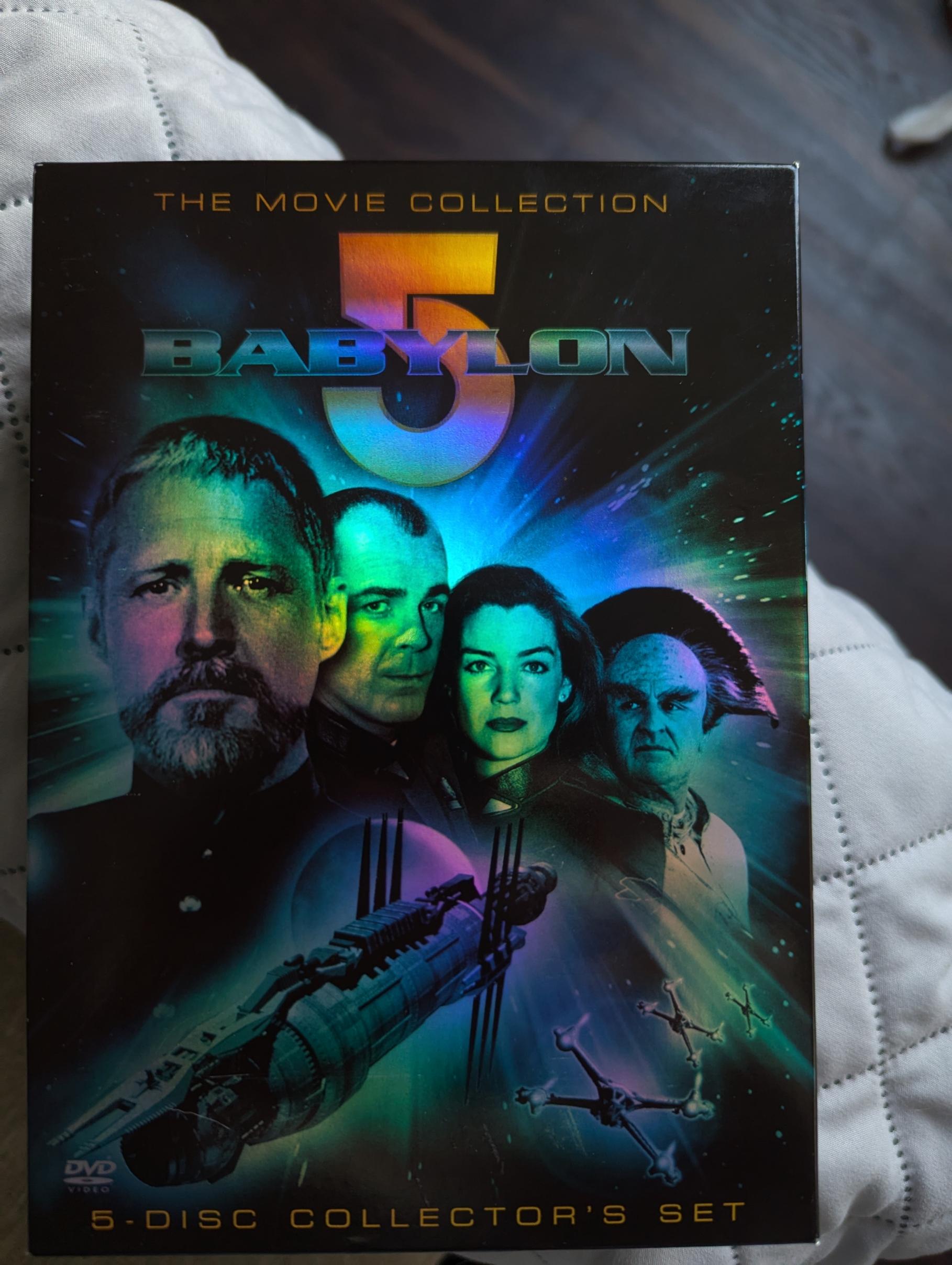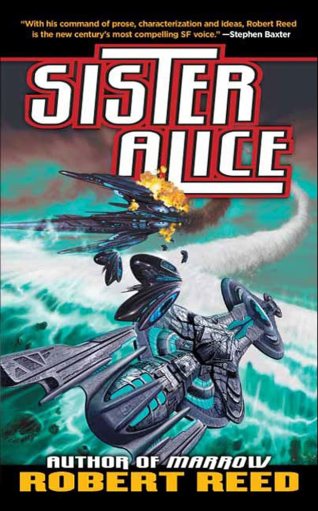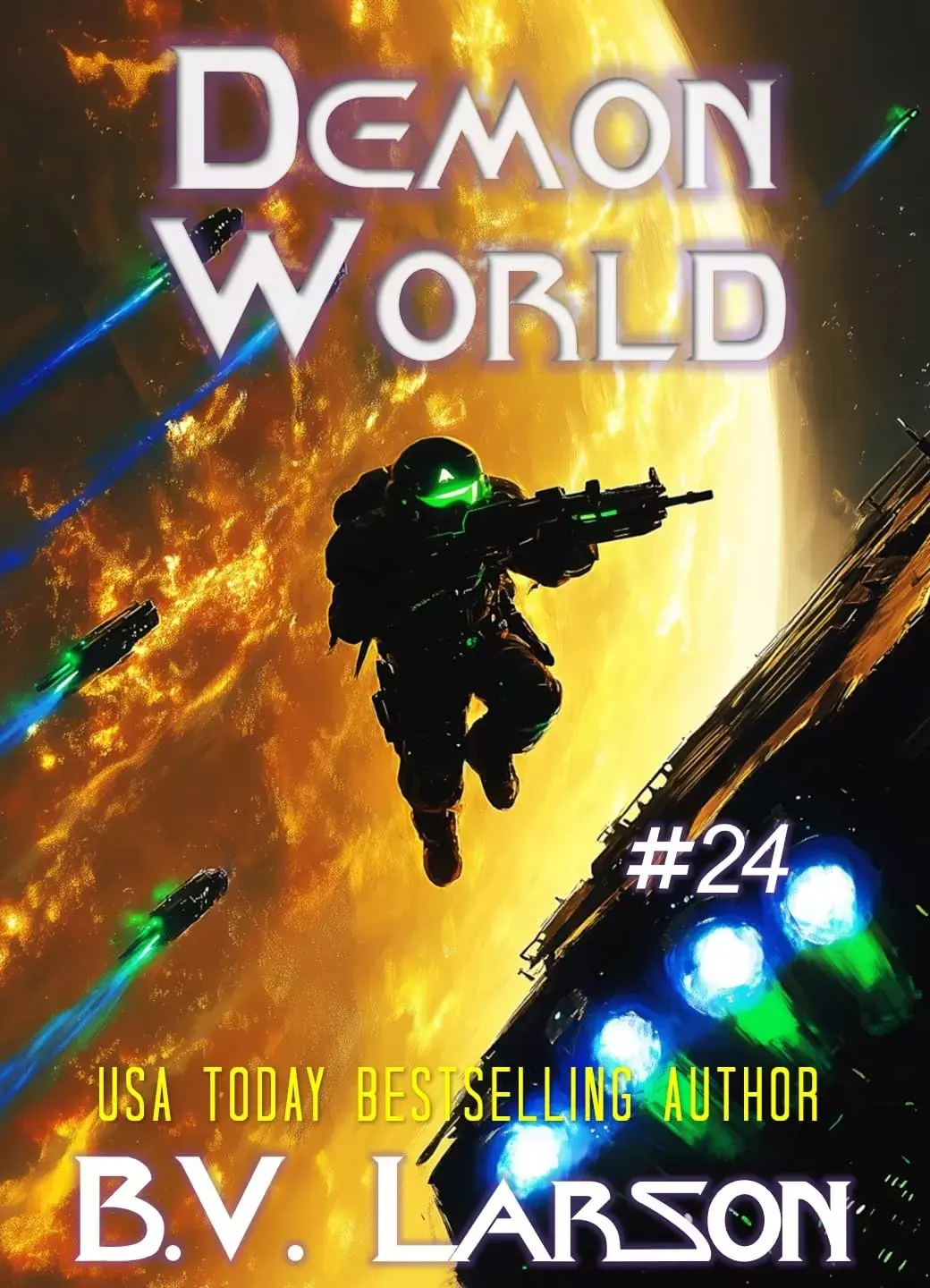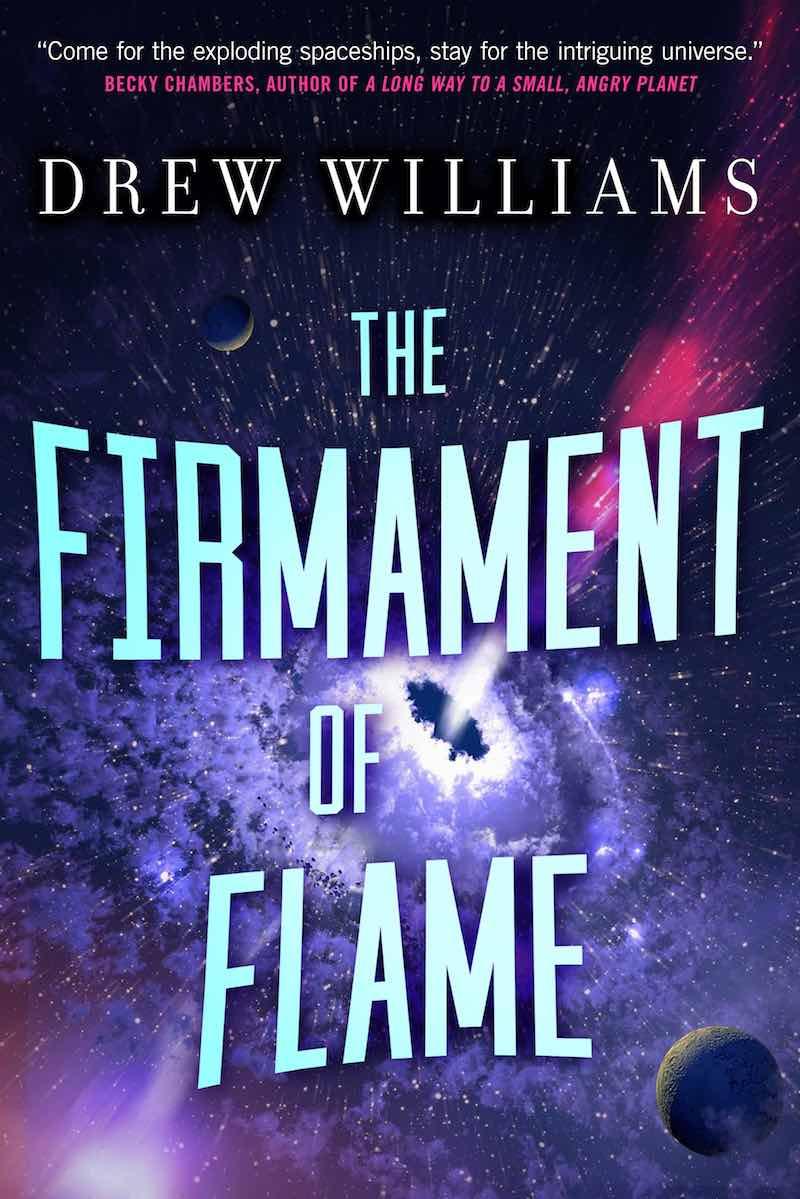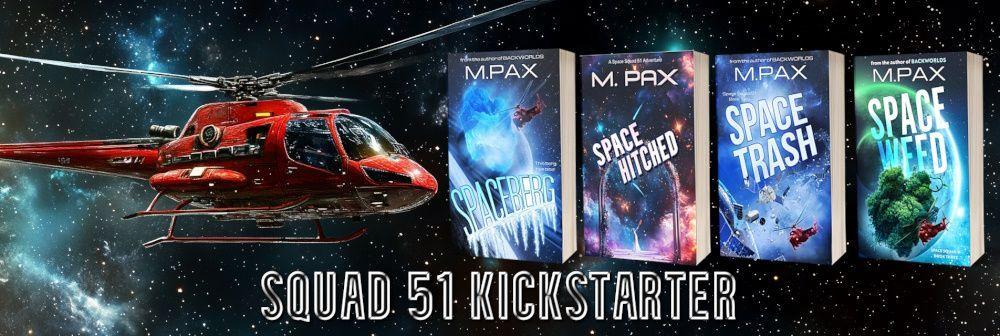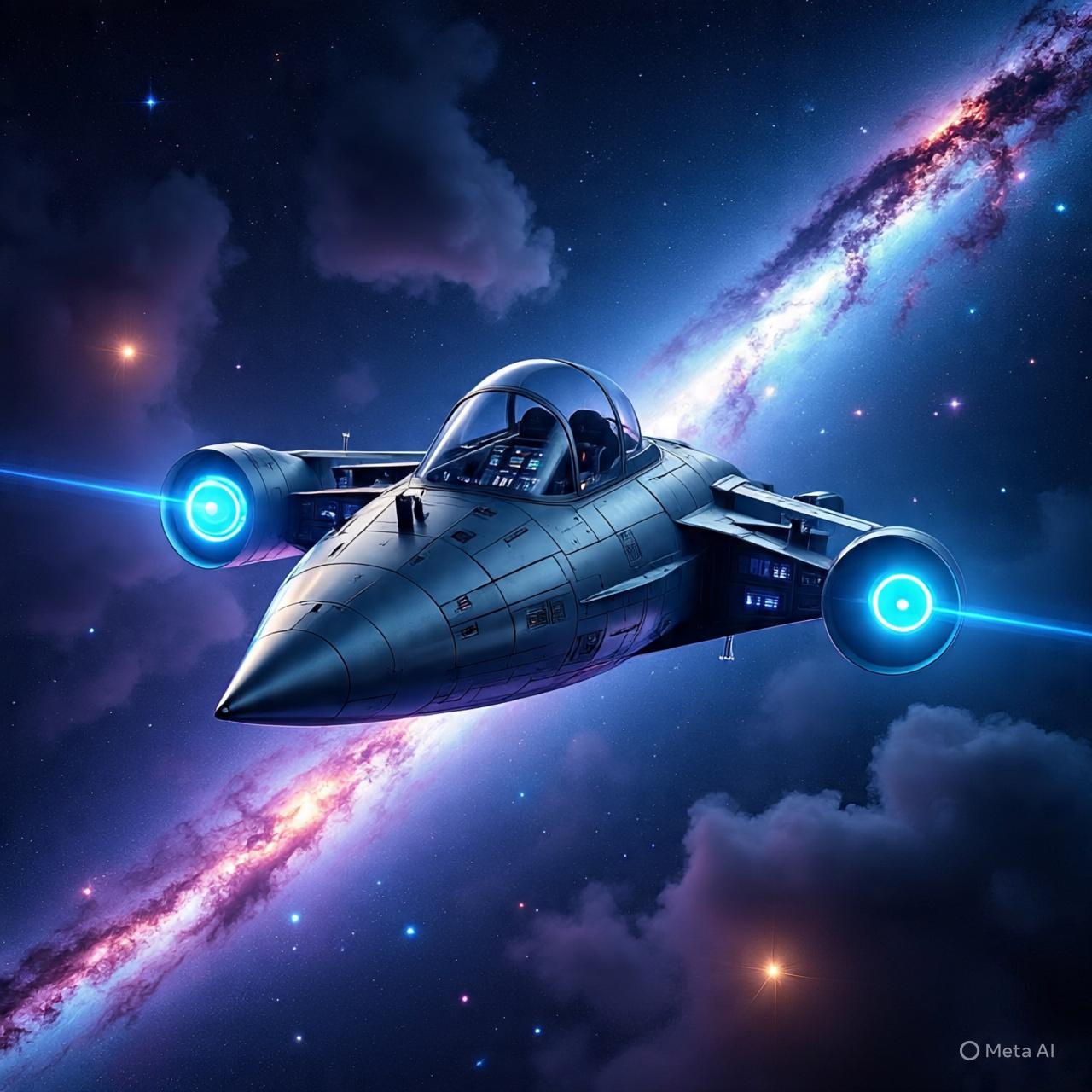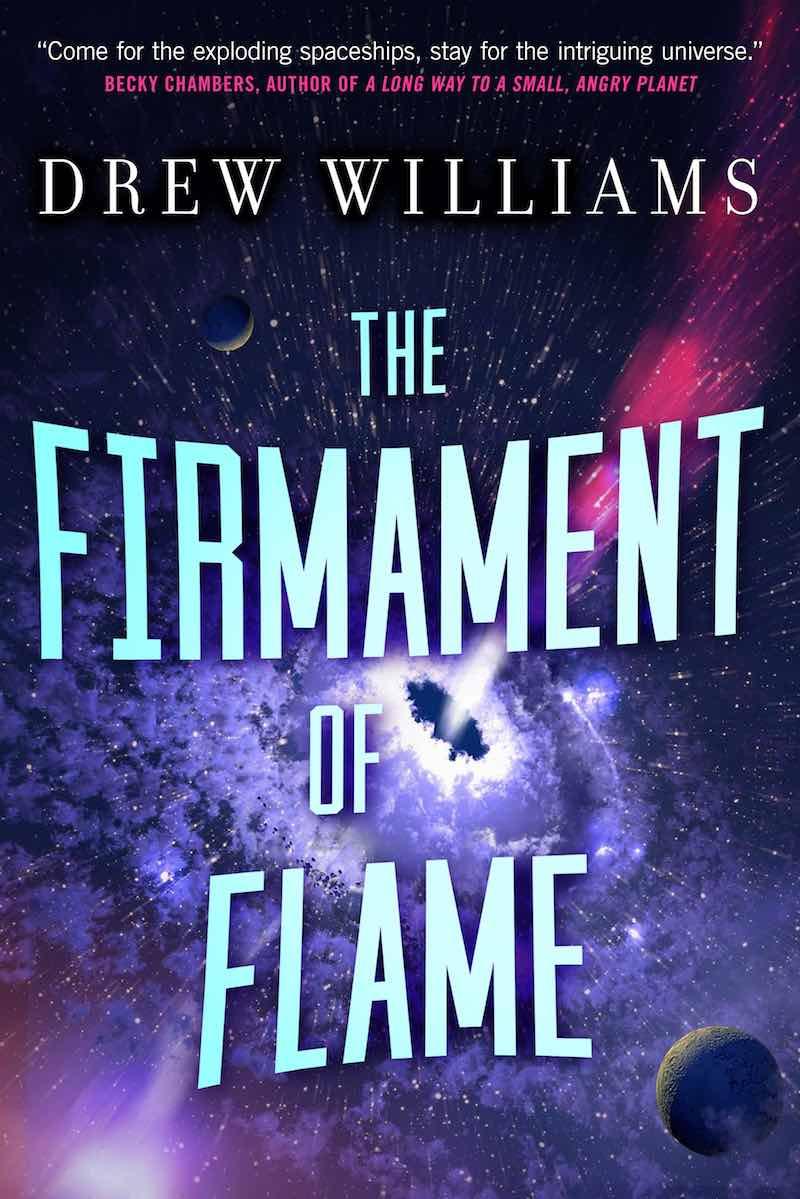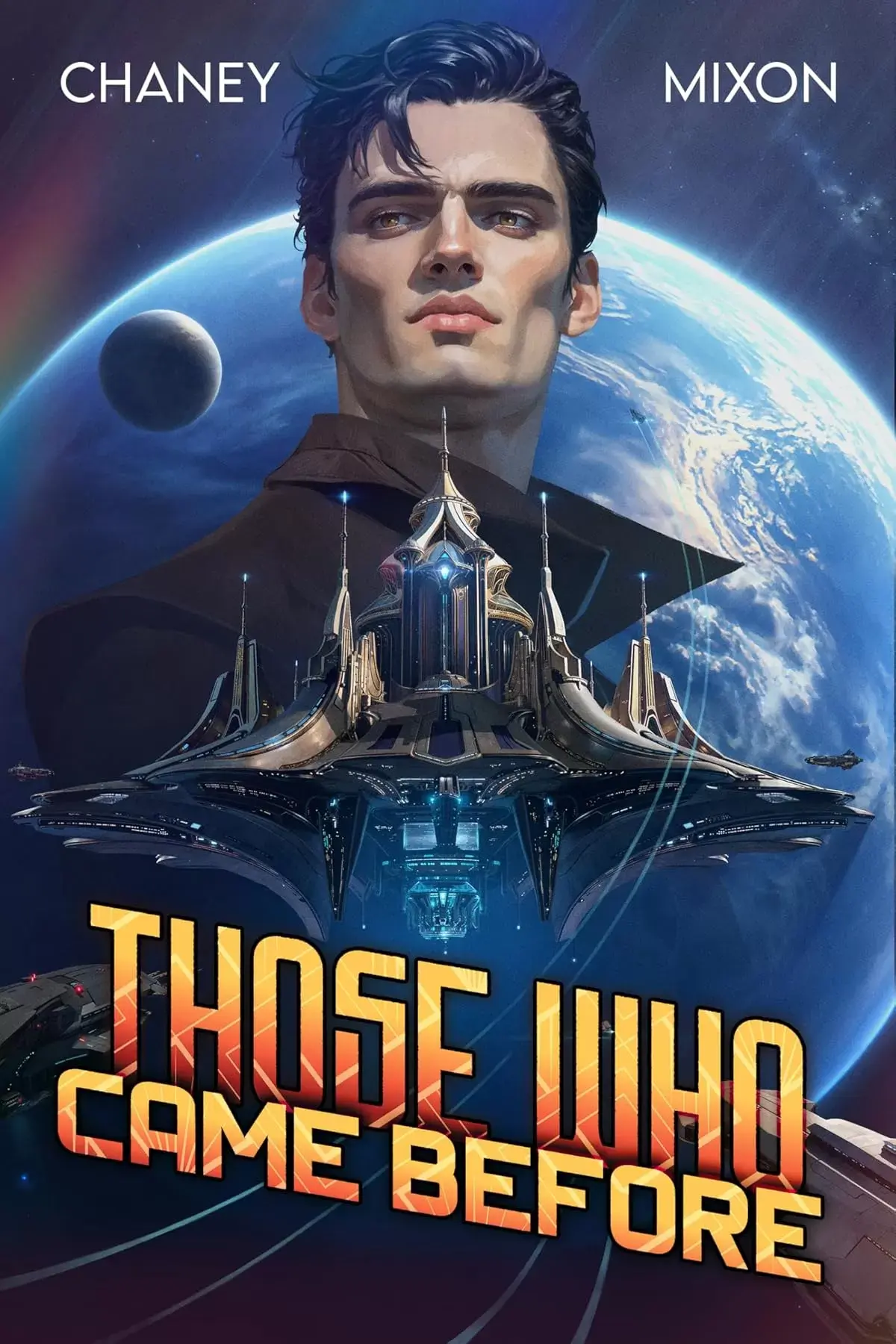The Price of Honor (The Starship In The Stone #8) by M.R. Forbes
Release Date September 1, 2025
#ScienceFiction #SpaceOpera
#spaceopera
See tagged statuses in the local BookWyrm community
Starship's Champion (Homeworld Lost #15) by J.N. Chaney, Scott Moon
Release Date August 31, 2025
#ScienceFiction #SpaceOpera
https://www.risingshadow.net/book/80470-starshipand039s-champion
Starship's Champion (Homeworld Lost #15) by J.N. Chaney, Scott Moon
Release Date August 31, 2025
#ScienceFiction #SpaceOpera
https://www.risingshadow.net/book/80470-starshipand039s-champion
The Greatship
In the last post I said I’d get back to Robert Reed’s Greatship series. This week I read the main story collection for that series: The Greatship. This is a collection of novellas and novelettes, which seems to be the format Reed really shines in. These are all separate stories, but they take place in a shared setting, with repeat and crossover characters. The result, even though it’s not one unified story, feels somewhat like a long novel with several threads, each told from a particular viewpoint.
The central concept is the alien megastructure named in the title. It’s a spherical object about the size of Uranus with gigantic rocket engines on one side. It’s discovered outside the galaxy, but moving at a third the speed of light. And it appears to be billions of years old, long abandoned by whoever or whatever built it. …
The Greatship
In the last post I said I’d get back to Robert Reed’s Greatship series. This week I read the main story collection for that series: The Greatship. This is a collection of novellas and novelettes, which seems to be the format Reed really shines in. These are all separate stories, but they take place in a shared setting, with repeat and crossover characters. The result, even though it’s not one unified story, feels somewhat like a long novel with several threads, each told from a particular viewpoint.
The central concept is the alien megastructure named in the title. It’s a spherical object about the size of Uranus with gigantic rocket engines on one side. It’s discovered outside the galaxy, but moving at a third the speed of light. And it appears to be billions of years old, long abandoned by whoever or whatever built it. It’s filled with innumerable tunnels and caverns, some of which are so enormous that entire ecological environments can exist within them.
Humans discover and reach the Greatship first, giving them salvage rights under the ancient laws of the galaxy. In this universe humanity is a young and relatively minor species. But this acquisition makes them a major player on the galactic stage. They convert the Greatship into a cruise ship, which they intend to take on a three hundred thousand year tour of the Milky Way. They allow large numbers of humans and aliens to buy passage, which can be purchased through various means, including trading colonization rights on various planets, new technologies, or any kind of novel knowledge.
This arrangement results in a large number of alien enclaves in the Greatship, which end up feeling like proxies for their home world environments and cultures. The Greatship becomes like a large metropolis that has neighborhoods for all the major ethnicities in the world, but in this case it’s alien cultures and environments.
Similar to Reed’s Sister Alice universe, there is no faster than light travel. But all advanced species are immortal, including humans, who have achieved it through genetic engineering. Most of the characters are tens of thousands of years old. Which makes taking millenia to reach a destination more an inconvenience than an obstacle. However, interstellar travel is still a dangerous and uncertain endeavor. And the idea of a galaxy wide empire seems infeasible, although we learn in one story that a shadow one already exists.
While humans are immortal, there’s no discussion of uploading or backing up. (Reed does flirt with it in a couple of stories, but it’s limited.) A human is able to recover from any injury, no matter how devastating, as long as their brain is left intact. These “bioceramic” brains are described as tough and endurable, but not indestructible. So characters can and do get killed. The recovery ability is actually at times used by characters strategically, such as knowing ahead of time that their body will be destroyed under intense acceleration, or in a crash, but will still rapidly recover.
This is not the post-scarcity utopia seen from many other authors. Resource constraints remain a reality, along with the associated economics and politics. One aspect of this is that Reed actually has fuel consumption be a concern for his characters operating in space, at least acknowledging the staggering energy requirements necessary for interstellar travel, something that even ostensibly hard science fiction often ignores. The main aspiration of this vision of the future is that mortality is a solvable problem, making the universe within reach, resulting in a fertile ground for stories.
My favorite story in the collection actually takes place outside of the Greatship. In “Mere”, a group of pilgrims set out for the Greatship, but their ship suffers a catastrophic accident, killing everyone on board except for one embryo, which the ship AI nurses into a girl kept in sensory deprivation for millenia, and then, with life support systems failing, manages to drop her on an alien world. The natives note that she fell from the sky, observe her ability to recover and immortality, and worship her as a god. These aliens, due to the quantum processing in their brains, can glimpse other realities in the quantum multiverse, and so end up having a very different attitude toward existential dangers than their posthuman god.
But most of the stories do take place on the Greatship, exploring the different communities that exist there, human and alien. The Greatship is run by the captains, where “captain” seems to refer to all the commanding officers on the ship. A few of the stories are told from their point of view, although we don’t see the Master Captain in this particular collection.
There’s a lot to like in these stories. Reed explores a lot of interesting concepts. If you’re a hard sci-fi fan, I recommend checking them out.
But as usual, I have to note a few nits. One of them Reed himself admits in an intro to his latest novel, Hammerwing: the collection has a fair number of typos, which the Amazon entry flags as a quality issue. I noticed these but didn’t find them too distracting. A bigger issue for me is how often I didn’t know who was speaking in dialogue. At times Reed excessively over specifies the speaker, but often he assumes we can figure it out when it’s not obvious. (My preference is for writers to err on specifying too much, but that’s obviously a matter of judgment and style.)
And I do have one skeptical reaction I had trouble reconciling away. I mentioned the ability of humans in these stories to recover from any injury that leaves their heavily engineered brain intact. It makes for a lot of cool scenarios. But often the recoveries, such as regrowing limbs, are so rapid that the chemical kinetics and thermodynamics seem dubious, like it would involve chemical reactions so fast that flesh would end up getting cooked. Admittedly some story sequences would have a little less punch without these rapid recoveries.
In the end, none of these issues prevented me from enjoying the stories.
Have you read any of them? If so, what did you think? Any recommendations on similar works?
#bookReview #bookReviews #sciFi #ScienceFiction #SciFi #SpaceOpera
Started reading Adrian Tchaikovsky's "Shards Of Earth: The Final Architecture: Book One."
https://amzn.to/40aul3G
📖🚀
Only 54 pages in, but I can already tell this is going to be an intricate, epic, and engaging #HardSciFi #SpaceOpera story...and a good start to this trilogy.
#books #reading #ScienceFiction #SciFi #HardScienceFiction
Started reading Adrian Tchaikovsky's "Shards Of Earth: The Final Architecture: Book One."
https://amzn.to/40aul3G
📖🚀
Only 54 pages in, but I can already tell this is going to be an intricate, epic, and engaging #HardSciFi #SpaceOpera story...and a good start to this trilogy.
#books #reading #ScienceFiction #SciFi #HardScienceFiction
#TTRPG friends, what are your favorite Space Opera adventures, modules, and settings published in the last 10 years? 🪐
I'm specifically looking for space opera, not space horror like Alien or Mothership. I know those can be great, but I'm looking for a more Traveller-like vibe with trade, politics, high-tech, exploration, FTL space travel and the like 🚀.
#TTRPG friends, what are your favorite Space Opera adventures, modules, and settings published in the last 10 years? 🪐
I'm specifically looking for space opera, not space horror like Alien or Mothership. I know those can be great, but I'm looking for a more Traveller-like vibe with trade, politics, high-tech, exploration, FTL space travel and the like 🚀.
So over on Tubi, I recently started watching #babylon5 for the first time. I decided its probably worth hunting the show down on DVD. I found this set of the movies, which was what I was aiming for right now. Is it worth getting the OG DVDs or a newer package of the show?
#physicalmedia #DVD #sciencefiction #spaceopera
Sister Alice
Multiple people have recommended Robert Reed’s books over the years. I started to read his Greatship stories many years ago, but got distracted and never made it back. Recently I came across a recommendation for his book, Sister Alice, as an example of hard science fiction space opera, and decided to check it out. Published in 2003, it’s a fix-up novel, composed of five stories which were originally published in Asimov’s Science Fiction magazine in the 1990s.
The setting is several million years in the future. Humans have colonized the galaxy, and there has been peace for ten million years. Before the peace, widespread availability of god-like technologies led to existential wars that threatened to destroy the entire species. To preserve humanity, it was decided that only a few individuals would have these powers.
These individuals were selected from the population for their innate …
Sister Alice
Multiple people have recommended Robert Reed’s books over the years. I started to read his Greatship stories many years ago, but got distracted and never made it back. Recently I came across a recommendation for his book, Sister Alice, as an example of hard science fiction space opera, and decided to check it out. Published in 2003, it’s a fix-up novel, composed of five stories which were originally published in Asimov’s Science Fiction magazine in the 1990s.
The setting is several million years in the future. Humans have colonized the galaxy, and there has been peace for ten million years. Before the peace, widespread availability of god-like technologies led to existential wars that threatened to destroy the entire species. To preserve humanity, it was decided that only a few individuals would have these powers.
These individuals were selected from the population for their innate disposition not to abuse their power. In order to ensure their genetics remain pure, they only reproduce by cloning, although the clones can be of both sexes. This has led to one thousand “family” dynasties who rule the galaxy. They are the rulers, warriors, and terraformers, among many other powerful roles.
This isn’t to say that regular humanity isn’t heavily improved. Death by old age or disease appears to have been eliminated, with people living for millions of years. Regular people can heal from devastating injuries and only experience limited pain due to built in analgesics. However, aside from this, they are restricted to something resembling the standard human form, although there are modified body plans on many different planets.
Ord is the youngest clone in the Chamberlain family, which is known for its terraforming prowess, making worlds and other environments habitable, such as floating continents on the rings of Saturn. Ord is only a few decades old, too young to take any posthuman forms. He learns from an elder brother that their sister, Alice, is coming to Earth. Alice is the family’s “Twelve”, meaning she is only the twelfth clone produced in the family, which has over twenty-four thousand by the start of the story. So she is a very senior member of the family, and the reasons for her visit are mysterious.
When Alice arrives, her actions are enigmatic and, for some reason, alarming to the family. She seems to take a liking to Ord, having private conversations with him, and helping in the wargames he’s currently participating in with his peers from other families.
Eventually it’s revealed that Alice and many of her peers attempted to create a baby universe at the core of the galaxy. They wanted to leave open an “umbilical cord” to access it. However this caused the energies from the baby universe to flow back into this one, creating a massive explosion which over hundreds of thousands of years lays waste to huge numbers of worlds toward the center of the galaxy, killing billions and displacing trillions.
For her crime, Alice is imprisoned. And the Chamberlains, along with all the other families who participated, are disgraced and, eventually, disbanded. Ord finds himself caught up in a plan he doesn’t understand, suddenly endowed with Alice’s talents, her posthuman powers. What follows is a tale told through tens of thousands of years, with chases and battles across interstellar space and on scales both unimaginably vast and at times unimaginably small.
Reed often describes the various encounters in terms of human interactions, but it’s clear that these are frequently just virtual interfaces for events happening between vast posthuman entities, often in the form of interstellar spacecraft, or maybe even fleets of ships. There’s a feeling that things are happening we could only dimly comprehend, and that maybe the human aspects of the characters only comprehend through the user interfaces they work though.
I mentioned above that this was cited as hard science fiction. There’s generally no FTL (faster than light) travel in the book. The galactic scale of the story is possible because everyone is immortal and events can take millenia to play out. But Reed helps himself to a lot of magical concepts, like inertialess drives. And he posits vast worlds and technologies built with dark matter, which may have been conceivable based on what was known about dark matter in the 1990s. But he’s often vague enough to allow the reader to conceptualize different ways the events might still be possible within known physics.
This is a book with a wealth of ideas. Most of Reed’s career has been as a prolific short story writer, where ideas tend to dominate, so it makes sense that would be his strength, and that it would show in this fix-up of multiple novellas. It’s not unusual in idea stories for character development to be lacking, and that’s true here. But I also found the storytelling problematic.
The story seems to take a long time to get going, to the point I nearly stopped reading in the first part when Ord has little to no agency. There’s a lot more movement from the second part on. But we often don’t understand what’s happening, a popular suspense strategy in short stories I’m personally not fond of. On a novel scale it leads to long stretches of not knowing why we should care about what’s happening. One Amazon or Goodreads reviewer said they found the book tedious, and I suspect this is why.
To be fair, this is one of Reed’s earlier novels, and the faults aren’t that unusual for a fix-up. The ideas were enough to make me enjoy and recommend it, just with a caveat so people know what they’re getting into. In many ways, it reminds me of Alastair Reynolds’ House of Suns, with enough similarities to make me wonder whether Reynolds’ tale was inspired by Reed’s book. It was good enough that I definitely plan to get back to Reed’s other books in the Greatship series.
Have you read it? If so, what did you think? Any recommendations on similar books?
#bookReview #bookReviews #bookReview #bookReviews #books #Fiction #HardSciFi #HardScienceFiction #sciFi #ScienceFiction #SciFi #SpaceOpera
Finally finished Iain Banks' "Look to Windward," it was... Banks. Not ENTIRELY Banks because there were at the end one or two people left alive. But still Banks. #books #sciencefiction #scifi #IainBanks #spaceopera #reading
Finally finished Iain Banks' "Look to Windward," it was... Banks. Not ENTIRELY Banks because there were at the end one or two people left alive. But still Banks. #books #sciencefiction #scifi #IainBanks #spaceopera #reading
📚Book Review📚
📖Teo’s Durumi by Elaine U. Cho.
Cover art by Jee-ook Choi.
I love ‘Ocean’s Godori’ with every fibre of my being and found ‘Teo’s Durumi’ to be a very worthwhile continuation. The story brought the characters to an excellent pause point in what I sincerely hope will be just the first of many more stories in this fictional universe.
This duology is an absolute must-read for fans of space opera who appreciate character depth and complicated relationships, and I will be eagerly anticipating more stories from this author in the future.
#bookreview #scifibooks #spaceopera #reading #bookishcommunity #bookishcommunityuk
Demon World (Undying Mercenaries #24) by B. V. Larson
Release Date August 17, 2025
#ScienceFiction #SpaceOpera #HardScienceFiction
Finished reading Drew Williams' "The Firmament Of Flame: The Universe After, Book Three."
https://amzn.to/436Cve9
📖🚀👽
Really good #SciFi #SpaceOpera story on it's own...but also really annoying for setting up a fourth book that will never come.
#books #reading #ScienceFiction
Finished reading Drew Williams' "The Firmament Of Flame: The Universe After, Book Three."
https://amzn.to/436Cve9
📖🚀👽
Really good #SciFi #SpaceOpera story on it's own...but also really annoying for setting up a fourth book that will never come.
#books #reading #ScienceFiction
Why Kickstarter? A New Way to Launch Into Space
https://www.mpaxauthor.com/4347-2/
#books #sciencefiction #scifi #spaceopera #humor #readers
Started reading Drew Williams' "The Firmament Of Flame: The Universe After, Book Three."
https://amzn.to/436Cve9
📖🚀👽
Excited to see how this epic, action-packed #SciFi #SpaceOpera novel concludes this series.
#books #reading #ScienceFiction
Started reading Drew Williams' "The Firmament Of Flame: The Universe After, Book Three."
https://amzn.to/436Cve9
📖🚀👽
Excited to see how this epic, action-packed #SciFi #SpaceOpera novel concludes this series.
#books #reading #ScienceFiction
Those Who Came Before (The Forgotten Ship #3) by Terry Mixon, J.N. Chaney
Release Date August 10, 2025
#ScienceFiction #SpaceOpera
https://www.risingshadow.net/book/80379-those-who-came-before

